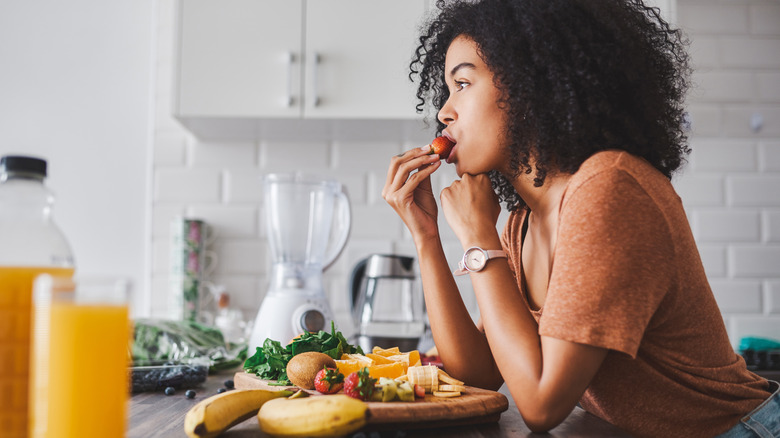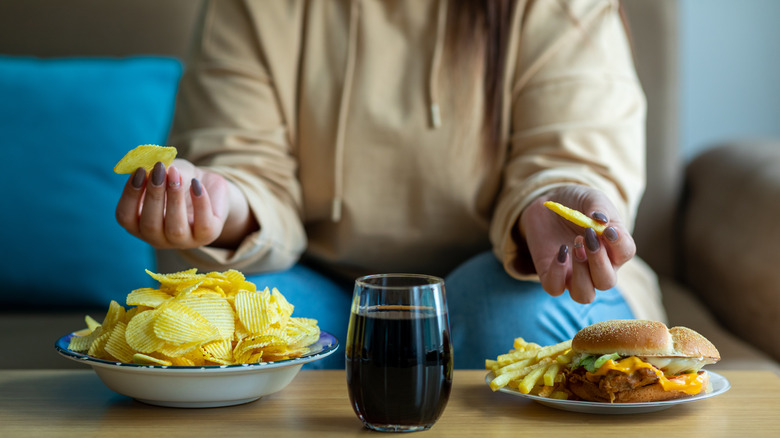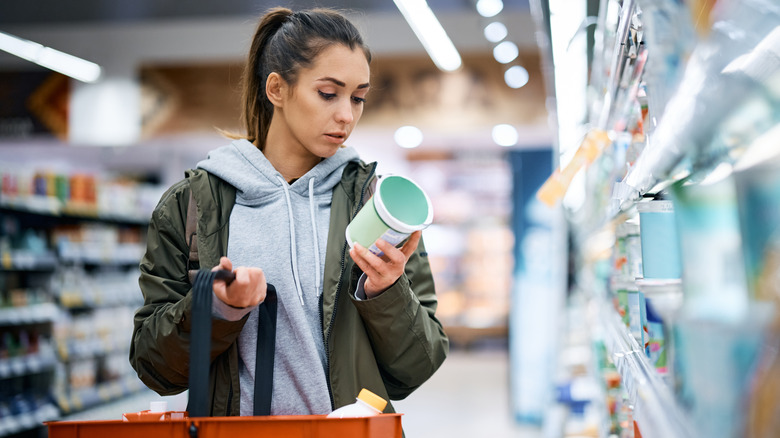Ingredients To Avoid To Make The Most Of Your Vegan Diet
Eliminating animal products from your diet isn't only a win for the pigs, chickens, and cows — it can be a smart move for your health too. According to Healthline, vegans may be more likely to maintain a healthy body weight and have a lower risk of developing conditions such as diabetes, heart disease, and some cancers. Moreover, a 2012 study published in the Annals of Nutrition and Metabolism found that vegetarians may have a significantly lower mortality risk compared to their meat-eating peers.
However, some hidden ingredients could wreck your vegan diet plan and undermine the health perks associated with cutting out meat, dairy, eggs, and seafood. This is especially a problem for "junk food vegans" who load up on packaged pastries, sugary sodas, processed vegan snacks, and instant meat-free meals (via Medical News Today).
Not sure if your favorite veg-friendly protein bar or plant-based frozen meal is hindering your health? Here are the ingredients and nutrients to watch out for.
Processed food is a problem, whether vegan or not
Junk food vegans may rely on processed faux meats and animal product-free snacks to complete their diets, but doing so may negate many of the health benefits associated with veganism. Specifically, it's best to limit ultra-processed foods when possible to reduce your risk of heart disease, diabetes, cancer, and other conditions.
Ultra-processed foods are foods that no longer retain their original form and have been loaded with sugar, salt, unhealthy fats (listed on labels as saturated fats and trans fats, per Harvard T.H. Chan School of Public Health), and other additives. For reference, the USDA's "Dietary Guidelines for Americans" recommends adults consume no more than 10% of their total daily calories from added sugars, consume no more than 10% of their total daily calories from saturated fats, limit trans fats as much as possible, and consume less than 2,300 milligrams of sodium per day.
Even if vegan staples like quinoa and kale are typically unprocessed and free of problematic additives and nutrients, others, like vegan cheese and sweets, are just as likely to be high in sugar, salt, and unhealthy fats as their non-vegan counterparts. No matter your diet, it's always a good idea to read nutrition labels to better understand what you're putting in your body.
Watch out for these hidden ingredients
Looking at sugar, sodium, and fat content will give you a general picture of a food's nutrition, but there are also specific ingredients that can tip you off to how processed — and potentially harmful — the food item is. Besides watching out for sugar, be sure to limit your intake of artificial sweeteners too. "These sweeteners are harmful to the microbiome because they disrupt the balance of good gut bacteria when they are consumed often. They're commonly listed under names like sucralose, aspartame, saccharin, and neotame," Bonnie Newlin, a registered dietitian nutritionist, told Health. Newlin also noted that potassium bromate, butylated hydroxyanisole (BHA), and butylated hydroxytoluene (BHT) — additives found in many packaged vegan foods — should be no-gos in your diet.
Though they can lengthen the lifespan of your plant-based bread or frozen meatless sausages, preservatives can also wreak havoc on your health. As Maggie Michalczyk, a registered dietitian, shared with Men's Health, items "that contain a lot of preservatives are most likely are low in every other nutrient vegans need (protein, vitamin B12, minerals like iron, etc.)." Some preservatives to scan labels for include TBHQ, which may have a negative effect on immunity, and carrageenan, which is thought to be linked to colon cancer.


